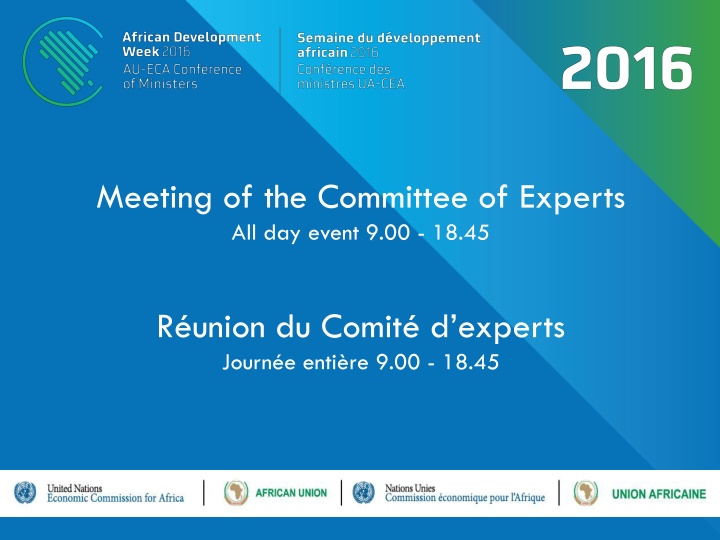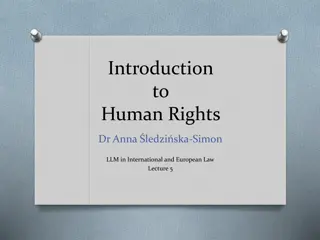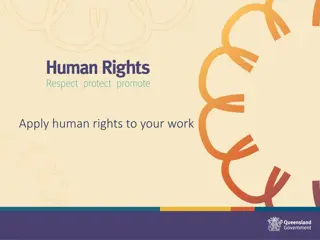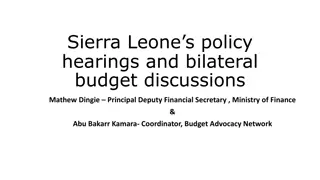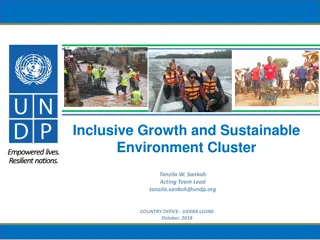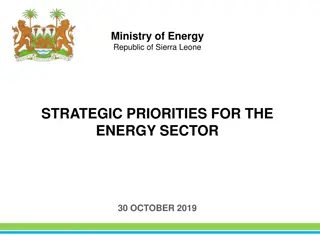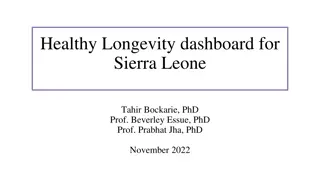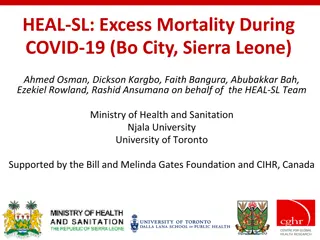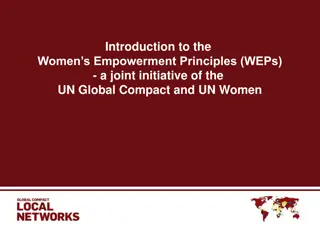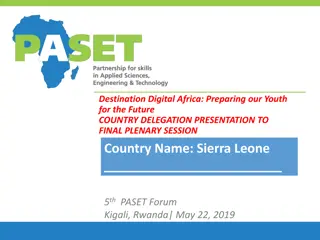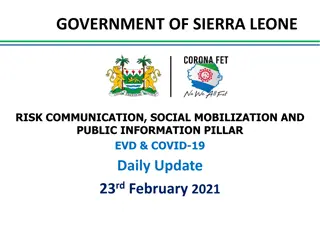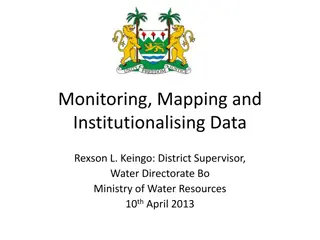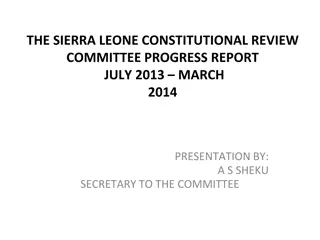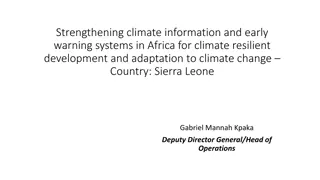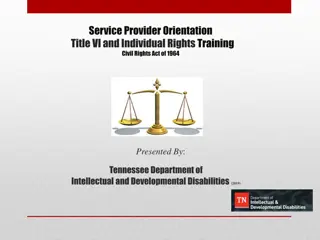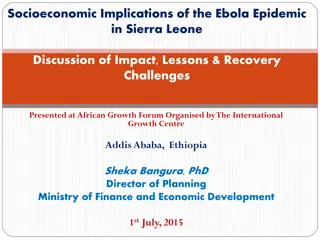Economic Empowerment & Human Rights in Sierra Leone
Economic Empowerment and Human Rights in Sierra Leone is a non-religious, non-political NGO focusing on promoting women and children's rights, community development, and democracy. With projects ranging from early child marriage campaigns to human rights education and livelihood support, the organization actively engages in various initiatives across Sierra Leone to empower communities and enhance human rights awareness.
Download Presentation

Please find below an Image/Link to download the presentation.
The content on the website is provided AS IS for your information and personal use only. It may not be sold, licensed, or shared on other websites without obtaining consent from the author.If you encounter any issues during the download, it is possible that the publisher has removed the file from their server.
You are allowed to download the files provided on this website for personal or commercial use, subject to the condition that they are used lawfully. All files are the property of their respective owners.
The content on the website is provided AS IS for your information and personal use only. It may not be sold, licensed, or shared on other websites without obtaining consent from the author.
E N D
Presentation Transcript
Meeting of the Committee of Experts All day event 9.00 - 18.45 R union du Comit d experts Journ e enti re 9.00 - 18.45
Addressing the challenge of international migration
ADDRESSING THE CHALLENGE OF INTERNATIONAL MIGRATION IN AFRICA Presentation by Takyiwaa Manuh, Director, Social Development Policy Division, ECA Thirty-fifth meeting of Committee of Experts Addis Ababa, 1 April 2016
CONTEXT People move not only to escape poverty, environmental disasters or violent conflict, but also to pursue their aspirations for a better life. Globalization has opened new avenues for migration distances have shrunk and information on opportunities is easily available and widely shared. International migration has enormous implications for growth and poverty alleviation in both origin and destination countries. About 31 million Africans, or little more than 3% of the continent s population, have migrated internationally, that is outside the borders of their own countries. 4
MIGRATION TRENDS The majority of migrants from Africa go to other African countries (as shown in the next slide). Only about 28% of migrants from Africa go to Europe, and of the total migrant stock in Europe, less than 12% are from Africa. Yet, the dominant misconception is that an overwhelming number of Africans are waiting to cross into Europe. 5
Emigrants from Africa migrate within their sub-region (%) 100 90 80 70 Percentage 60 50 40 30 20 10 0 West Africa Southern Africa Central Africa East Africa North Africa 6
Recent migrants in OECD countries by region of origin (%) AFRICA 11.3 SOUTH AND CENTRAL AMERICA 22.4 OCEANIA 1.7 NORTHERN AMERICA 2.1 Asia 29.0 EUROPE 33.6 7
MIGRATION TRENDS Migrants tend to be young (mostly 15-40 years), male, and with some education beyond primary school. Increasingly, migration has become feminised as women now constitute almost half (49%) of the international migrant population. Since 2006 remittances have been Africa s largest source of foreign inflows after foreign direct investment (FDI). Remittance inflows to Africa quadrupled between 1990 and 2010, reaching nearly $40 billion in 2010, equivalent to, on average, almost 3% Africa s gross domestic product (GDP). 8
KEY ISSUES Africa is a youthful continent while the rest of the world is ageing High youth unemployment driven by low quality education and skills acquisition limits opportunities of young Africans Free movement of people and labour mobility need to be recognized as important enablers for regional integration and economic development of the continent Africa today needs an African perspective which requires a better and shared understanding of the issues and a common response. 9
POLICY GAPS AND REQUIRED ACTIONS 1. Data availability Address data constraints and undertake analytical work to remove misconceptions on migration and support policy 2. Design national strategies that include migration flows, recognizing the contribution of migration in promoting development 3. Policy coherence to implement regional and sub-regional protocols and migration-related goals and aspirations of African Agenda 2063 and Agenda 2030 for Sustainable Development 4. Regional integration and border management to facilitate migration and visa-free travel for Africans in Africa 5. Political support from member States to strengthen dialogue among RECs, international partners, and other stakeholders for increased collaboration and cooperation 10
Key Issues THANK YOU 11
